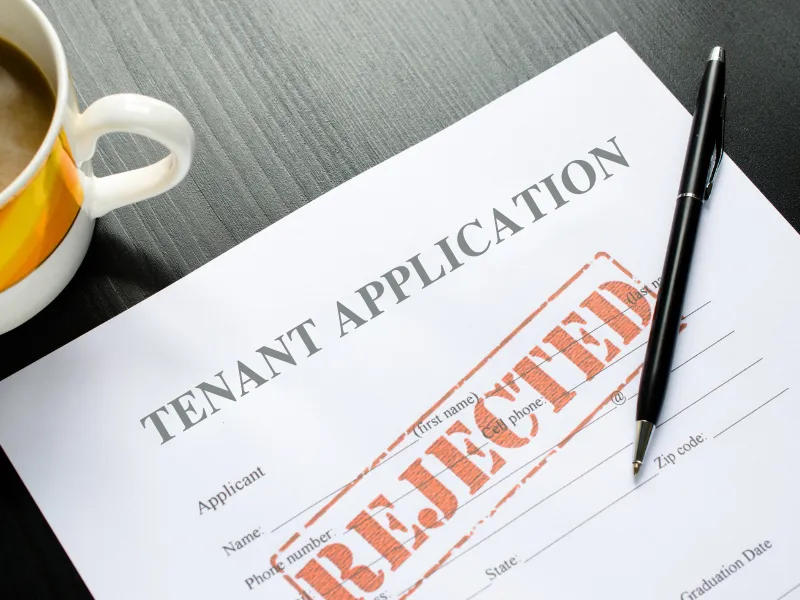
Did you know a poor credit score can hurt your chances of renting in Texas?
Landlords check credit scores to decide if you're a good tenant. But, the rules about this can be tricky.
In Texas, landlords can look at credit scores when they review your application. They must follow Texas Property Code and federal laws, like the Fair Credit Reporting Act.

This makes us wonder what landlords look for and what applicants' rights are. Knowing these laws is key for both landlords and tenants. It helps make the rental process fair and clear.
"Credit scores in the rental market aren't just numbers—they're narratives about financial reliability that require thoughtful interpretation. While a 650 benchmark is common in Texas, the most effective landlords look beyond the score to understand the story it tells. A tenant with a 620 score who experienced a medical hardship but has since demonstrated consistent recovery often presents less risk than someone with a 680 score showing a pattern of increasing debt utilization. The goal isn't to find perfect credit histories—they rarely exist—but to identify responsible financial behaviors that translate to responsible tenancy. This human-centered approach to credit evaluation creates opportunity for good tenants while still protecting property investments."
Taylor Wilson, CEO of Rent with Clara
Credit scores are key in the tenant screening process for Texas landlords. The Texas Property Code sets rules for using credit scores to check potential tenants.
The Texas Property Code sections 92.3515 and 92.352 explain tenant screening rules. These include notice of selection criteria and application fees. Landlords must tell applicants about the credit score criteria used.
Landlords must tell applicants about the credit score requirements and how they affect approval. This makes sure applicants know what affects the landlord's decision.
Credit score ranges vary among landlords. But, a score of 650 or higher is often seen as okay. Some landlords might ask for a higher score.
A Texas real estate expert says, "A good credit score can greatly help an applicant get approved for a rental property."
"Credit scores are a crucial factor, but they're not the only consideration. Landlords look at the overall financial health of the applicant."
Knowing these credit score ranges can help applicants get ready. They can work on credit issues before applying.

While the general benchmark is 650 or higher, many landlords require a credit score of at least 700 for premium properties, and some private landlords may accept lower scores with additional requirements. Most landlords and property managers also evaluate whether applicants can afford rent by requiring income that's typically three times the monthly rent amount.
According to Texas property code, landlords have flexibility in setting their own credit standards, meaning someone looking to rent an apartment may find varying requirements even within the same city.
Landlords are allowed to consider multiple factors when determining what's needed to rent an apartment, including debt-to-income ratios and available credit limits. If you're trying to get approved for an apartment with a borderline credit score, demonstrating stable income that exceeds the monthly rent amount by the required multiple can strengthen your application significantly.
It's important for landlords and tenants to know the laws about denying rental applications in Texas. These laws help landlords manage their properties while protecting tenants' rights.
The Fair Housing Act stops discrimination based on race, color, and more. Landlords must make sure their credit checks don't discriminate. This is to prevent lawsuits.
Landlords can look at credit scores when deciding. But, they must treat all applicants the same. For more on why you can deny an application, check Jaxon Texas.
The Fair Credit Reporting Act (FCRA) says landlords must tell applicants why they were denied. This includes the credit score and how to reach the credit agency.
Here's what you need to tell applicants:
By following these rules, landlords can avoid legal problems. This is because they're following fair housing laws and the FCRA.

In Texas, landlords use a detailed rental application process. This includes credit checks to judge potential tenants. It helps them figure out the risk of renting to someone.
Landlords charge fees for processing rental applications. These fees cover the costs of credit checks. The price can range from $25 to $100 per person.
The cost of a credit report is usually included in the application fee. Landlords use this report to check an applicant's credit history. They use it to see if the applicant is creditworthy.
Breakdown of Typical Application Fees:
Tenant screening reports give a detailed look at an applicant's background. They include credit history, rental history, and more. These reports help landlords decide if someone is a good tenant.
The reports usually have:
Knowing what tenant screening reports include helps applicants prepare. It makes the rental application process clearer.
Tenant screening in Texas involves more than just credit checks, as landlords and property managers use comprehensive services to make tenant decisions through detailed tenant selection processes. These services examine tenant background information including employment verification, previous rental history, and criminal records, helping property owners assess the complete risk profile before they rent the apartment to applicants.
Professional screening services streamline the process for busy landlords and property managers by providing standardized reports that go beyond simply asking applicants to check your credit score. This comprehensive approach to tenant screening in Texas helps ensure that property owners can make tenant decisions based on complete information rather than relying solely on credit data, ultimately benefiting both landlords seeking reliable tenants and qualified applicants looking to secure housing.
Credit scores are just the starting point; landlords look at various aspects of credit history and reports to make informed decisions about potential tenants.
When evaluating credit history, landlords consider several key factors beyond the credit score number.
These include:
By examining these factors, landlords can gain a more comprehensive understanding of an applicant's financial responsibility.
Rental history plays a significant role in the approval process.
Landlords typically review:
By considering both credit history and rental history, landlords can make more informed decisions about tenant applications.
The Fair Credit Reporting Act (FCRA) is a federal law that protects tenants. It regulates how landlords use credit information during the rental application process. This ensures tenants are treated fairly.
When a landlord denies a rental application based on credit report information, they must send an adverse action notice. This notice must explain why the application was denied, the credit reporting agency used, and the tenant's right to dispute the report's accuracy.
For instance, if a landlord denies an application because of a low credit score, the notice should detail the score and the agency that provided the report. This lets tenants check their credit and fix any errors.
Tenants can dispute any wrong information in their credit reports. First, they should get a copy of their report from the credit agency. Then, they can point out errors and send a dispute letter with proof.
It's crucial for tenants to be proactive in reviewing their credit reports and disputing any mistakes. This can greatly affect their chances of getting a rental property.
Understanding their rights under the FCRA helps tenants navigate the rental application process fairly. If you think your credit report is wrong or your rights were violated, seek legal advice.
In Texas, tenants with bad credit can still get approved for rentals. Landlords see bad credit as a risk, but there are ways to lessen this concern.
One good strategy is to offer a bigger security deposit or pay rent early. This makes landlords feel safer, as it covers possible damages or unpaid rent. It shows the tenant is serious about paying on time.
Key benefits of larger security deposits include:
Another option is to find someone with good credit to co-sign the lease. This person promises to pay if the tenant can't. Having a co-signer can make a rental application much stronger.
When looking for a co-signer, landlords want someone with a steady income and good credit. It's important for tenants to talk to potential co-signers and make sure they know what they're getting into.
Providing proof of steady income and good rental history can also help. Landlords want to know that tenants can pay rent and have been reliable in the past.
To do this, tenants should be ready to show:
For more tips on managing rental debt and improving credit, check out this resource.
Texas landlords can choose not to rent to someone based on their credit score. But, they must follow the Fair Credit Reporting Act and Texas Property Code. Knowing about texas landlord credit score requirements is key for both landlords and tenants.
The rental application process includes credit checks. Landlords use tenant screening reports to decide if someone can rent. Tenants should know their rights under the Fair Credit Reporting Act. This includes the right to challenge wrong credit info.
To get approved, tenants with bad credit might offer a bigger security deposit. Or, they could find someone to co-sign the lease. By understanding the rules on tenant screening and the rental application process, everyone can feel more confident in the rental market.